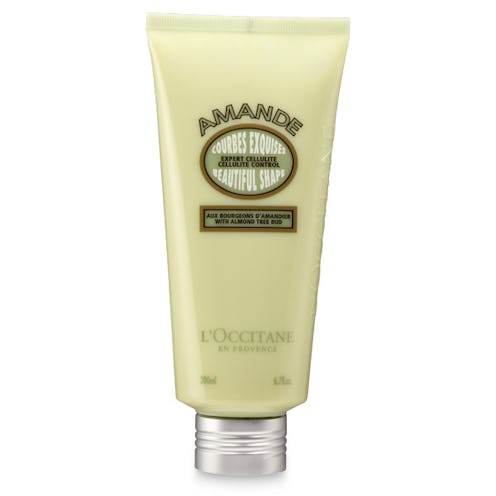News
Sorry, Weight Loss Doesn't Come in a Tube

Just in time for New Year's resolutions, the Federal Trade Commission is cracking down on weight-loss skin creams and powders. The FTC announced Tuesday it will settle with four companies in a slew of litigation called "Operation Failed Resolution." (Very cute, FTC.) All told, the companies will pay a total of $34 million in customer restitution for claiming their products could help customers lose weight.
"Resolutions to lose weight are easy to make but hard to keep," the FTC's Jessica Rich said. "And the chances of being successful just by sprinkling something on your food, rubbing cream on your thighs, or using a supplement are slim to none," Rich said.
The FTC has some decent advice there, unlike the companies they settled with. HCG Diet Direct is appropriately sketchy looking — it sells weight-loss drops that sound like something out of a Victorian mail-order catalog. Their products were also made out of hormones found in the human placenta ... so that's pretty gross. The company's advice for best results? A high-calorie diet for two days, followed by a very low-calorie diet avoiding heavy exercise. So not really top information there.
The FTC also settled the company Leanspa. (You likely know them from popup "news story" ads that said things like "Acai Berry Diet Exposed: Miracle Diet or Scam?" and "1 Trick of a Tiny Belly: Reporter Loses Her 'Belly' Using 1 Easy Tip.") Also under fire was Sensa — that little packet of seasoning supposedly meant to help you lose weight. (Not cocaine. Not cocaine.) Wouldn't you know it, it doesn't work — so Sensa will be writing consumers a check of $26.5 million.
The last company was in trouble was actually L'Occitane, that nice, quiet store at the mall that looks posh enough for your mom's birthday gift and smells aggressively like the French countryside on acid. Their lemon verbena concoctions are all well and fine, but the FTC didn't take too kindly to their Almond Beautiful Shape slimming cream. It contains Peruvian liana, quinoa, and carrot oil and claims to reduce cellulite in the thighs and butt. But consumers are probably better off eating quinoa and carrots if they want to achieve the advertised results. Or even rubbing a carrot across their backsides.
For people really wanting to see change, though, it's lifestyle shifts that are actually going to help. Luckily for our diet-obsessed culture, U.S. News and World Report came out with their list of best diets Tuesday. The list ranked diets according to health, safety, weight-loss effectiveness, feasibility, and the amount of protection it would provide against heart disease and diabetes. Diets that stressed balanced eating, an active lifestyle, and portion control (aka common sense) came in top for losing weight and keeping it off, while short-term fixes that involved eliminating food groups ranked at the bottom.
The DASH diet (essentially the heart-healthy Mediterranean diet but tweaked to fight high blood pressure) came in first, to pretty much no one's surprise. The trendy Paleo diet came in dead last for its lack of longterm feasibility and the lack of research supporting it. As far as diet programs, Weight Watchers took home the gold, while the Dukan diet ranked at the bottom for its high-protein, no-carb outlook on life.
(Image: L'Occitane)